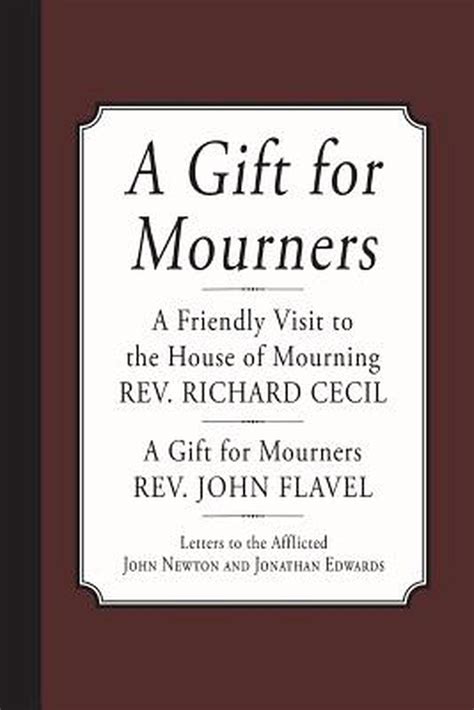A Quote by Francois de La Rochefoucauld
A man's wits are better employed in bearing up under the misfortunes that lie upon him at present than in foreseeing those that may come upon him hereafter.
Related Quotes
Obviously, a man's judgement cannot be better than the information on which he has based it. Give him the truth and he may still go wrong when he has the chance to be right, but give him no news or present him only with distorted and incomplete data, with ignorant, sloppy or biased reporting, with propaganda and deliberate falsehoods, and you destroy his whole reasoning processes, and make him something less than a man.
If idioms are more to be born than to be selected, then the things of life and human nature that a man has grown up with--(not that one man's experience is better than another's, but that it is 'his.')--may give him something better in his substance and manner than an over-long period of superimposed idiomatic education which quite likely doesn't fit his constitution. My father used to say, 'If a poet knows more about a horse than he does about heaven, he might better stick to the horse, and some day the horse may carry him into heaven'
The ibtilaa' (testing) of the believer is like medicine for him. It cures him from illness. Had the illness remained it would destroy him or diminish his reward and level (in the hereafter). The tests and the trials extract these illnesses from him and prepare him for the perfect reward and the highest of degrees (in the life to come).
When you have received Him, stir up your heart to do Him homage; speak to Him about your spiritual life, gazing upon Him in your soul where He is present for your happiness; welcome Him as warmly as possible, and behave outwardly in such a way that your actions may give proof to all of His Presence.
No man can promise himself even fifty years of life, but any man may, if he please, live in the proportion of fifty years in forty-let him rise early, that he may have the day before him, and let him make the most of the day, by determining to expend it on two sorts of acquaintance only-those by whom something may be got, and those from whom something maybe learned.
A man of discernment, meditating on the healing Divine Providence, bears with thanksgiving the misfortunes that come to him. He sees their causes in his own sins, and not in anyone else. But a mindless man, when he sins and receives the punishment for it, considers the cause of his misfortune to be God, or people, not understanding God's care for him.
The easy confidence with which I know another man's religion is folly teaches me to suspect that my own is also. I would not interfere with any one's religion, either to strengthen it or to weaken it. I am not able to believe one's religion can affect his hereafter one way or the other, no matter what that religion may be. But it may easily be a great comfort to him in this life-hence it is a valuable possession to him.
Let a man choose what condition he will, and let him accumulate around him all the goods and gratifications seemingly calculated to make him happy in it; if that man is left at any time without occupation or amusement, and reflects on what he is, the meagre, languid felicity of his present lot will not bear him up. He will turn necessarily to gloomy anticipations of the future; and unless his occupation calls him out of himself, he is inevitably wretched.
...it is only when a man goes out into the world with the thought that there are heroisms all round him, and with the desire all alive in his heart to follow any which may come within sight of him, that he breaks away... from the life he knows, and ventures forth into the wonderful mystic twilight land where lie the great adventures and the great rewards.
Who can justly say aught against Joseph Smith? I was as well acquainted with him, as any man. I do not believe that his father and mother knew him any better than I did. I do not think that a man lives on the earth that knew him any better than I did; and I am bold to say that, Jesus Christ excepted, no better man ever lived or does live upon this earth. I am his witness




































